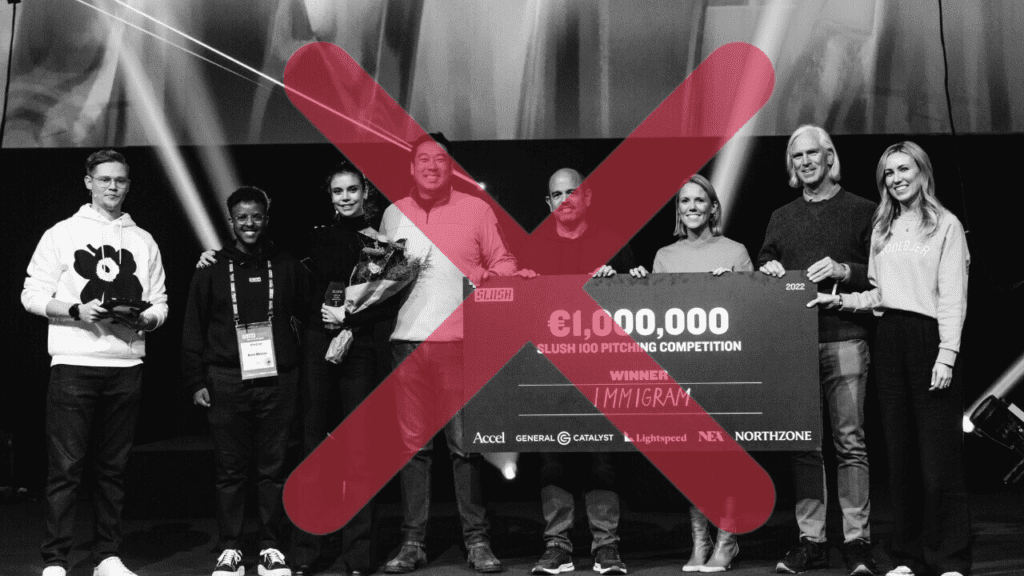
Usually, the winners of a pitching competition are bathed with accolades, media attention, and applause. After it’s done and dusted, all they have to think about is what to spend that sweet, sweet prize money on.
But, this year, for one startup, things haven’t gone to plan. Immigram — the winner of the Slush 100 startup competition — is mired in controversy due to its links with the Russian tech scene. Not only are the founders Russian passport holders, but it’s also recruiting tech workers to move to Moscow.
This left many wondering why the judging panel decided to invest in a company with such strong links to the Russian business scene. In response to pressure, Slush rescinded the award.
A statement from Slush
Slush released a statement in which it revoked Immigram’s win and requested that the funds pull their potential investment from the startup. But, yes, VCs may still decide to invest in Immigram. At the time of writing, investors on the judging panel have been silent.
Immigram also confirmed on LinkedIn that it is opting out of the Slush competition.“We will continue supporting Ukraine and building a company for millions of talented people who want to move internationally,” the Russian-born company noted in the post.
But let’s take a step back.
Who is Immigram?
Immigram is a B2B SaaS platform enabling employers to attract and retain international talent by guiding them through the myriad of paperwork to enter the different employment markets. 10% of their clients have been Russians.
Judges awarded them a €1m investment from five top VCs: Accel, General Catalyst, Lightspeed Venture Partners, NEA and Northzone.
Money over everything
In many ways, we’ve found ourselves in a common capitalist pitfall: cash won over ethics. Immigram came top because the uncomfortable truth is that investors are only involved because they want to make money. Honestly, the fact that Immigram is supporting the Russian tech and startup scene means it should never have been able to enter Slush’s competition in the first place.
There is a massive grey area here. Should we hold citizens accountable for the actions of their governments? Is — as TechCrunch pointed out in the past — hiring workers from Russia actually damaging the Kremlin? Should funds invest in countries engaged in warfare?
These are all vital topics we need to discuss, but the key fact is, in such troubling times, more due diligence needs to be taken in startup competitions. The selection criteria and what constitutes links to a power like Russia are of the utmost importance. And, in that, Slush failed. Let’s hope that the startup world takes note and stops travesties like this from happening again.

